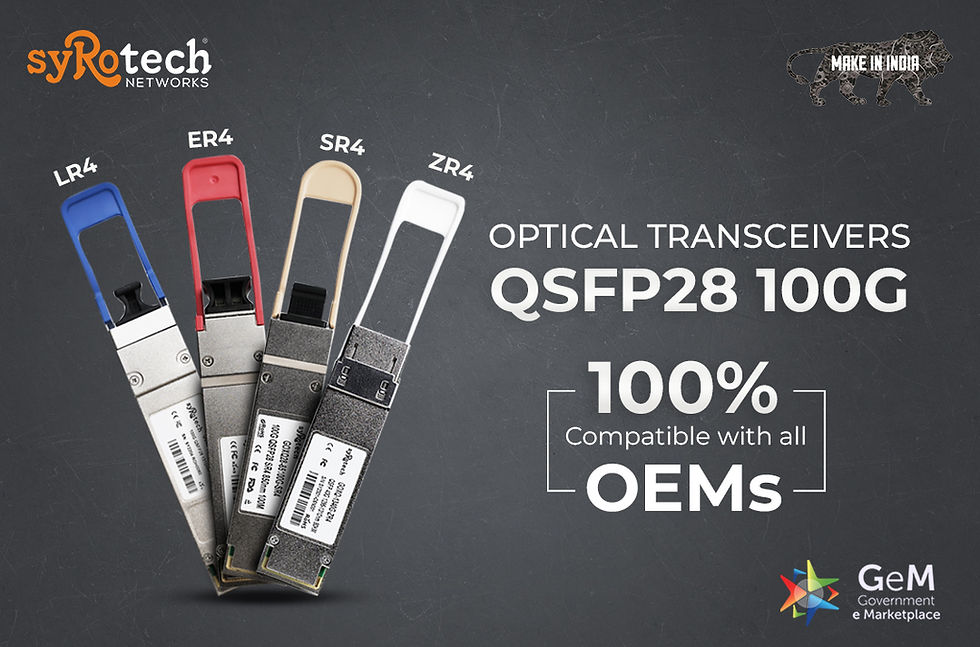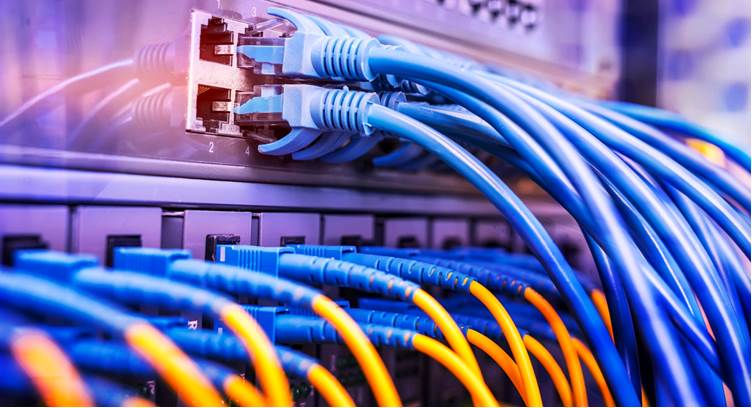The critical role of SFP Transceivers in Modern Data Centers: Understanding their Application and Future Prospects!
- Jun 26, 2024
- 3 min read
Introduction:
In today’s digital age, data centers are the backbone of the Internet, powering everything from cloud computing to online streaming services. In these larger projects, small form-factor pluggable (SFP) transceivers play a key role in ensuring efficient data transmission. This article examines the important role of SFP transceivers in data centers, their applications, and future prospects, and spotlight on Syrotech Networks as a leading SFP manufacturer.
What is a Data Center?

A data center is a facility where computer systems and associated infrastructure such as telecommunications and storage are stored. These areas are critical for information storage, management and dissemination. They support key business functions by providing a stable, scalable and secure environment for capturing data. Typical data center infrastructure includes servers, storage systems, networking equipment, power supply, cooling systems and various other subsystems.

An SFP transceiver is a compact, temperature-adjustable module used for data communications and telecommunications applications. They simplify data transmission over fiber optics or various copper cables, creating more versatility in network hardware Compared to other transceivers, such as QSFP (Quad Small Form-factor Pluggable) or CFP (C Form). -factor Pluggable) aside, SFP transceivers are a well-balanced mix of flexibility, size and functionality offered, making them a popular choice in a variety of network configurations.

The SFP transceiver is an integral part of data center efficiency. They are used in network switches, routers, and servers to enable high-speed data transmission over network segments. These transceivers support scalable network designs to allow for easy upgrades and expansion. Their hot-swappable nature means they can be changed or upgraded without shutting down the network, with minimal downtime and interruptions.
Importance of SFP Transceivers in the Data Center Industry:
Hosted SFP Transceivers in Data Centers offer Several Key Benefits:
Energy efficiency: The energy consumption of SFP conveyors is lower compared to larger conveyors, resulting in lower energy costs and heat production. This operation supports green data center operations.

Cost-Effectiveness: Due to their compact size and modular design, SFP transceivers offer a cost-effective solution for network upgrades and expansion. This flexibility allows data centers to adapt to increasing data demands with minimal flexibility.
Enhanced Performance: By facilitating faster data traffic, SFP transceivers help maintain optimal network performance, which is important for applications that require low latency and high bandwidth.
Future Prospects for SFP Transceivers in Data Centers:
The future of the SFP transceiver looks promising, driven by continued technological advances and increasing data demands. Innovations in SFP technology are expected to increase data transfer speeds and improve compatibility with emerging network standards. As data centers evolve to support technologies such as 5G, IoT and edge computing, the role of SFP transceivers will become increasingly important in ensuring efficient and scalable network operations.
Syrotech Networks: Leading the way in SFP Manufacturing industry:

Syrotech Networks stands out as a major player in the SFP transceiver market. Known for its high-quality and reliable products, Syrotech Networks offers a wide range of SFP transceivers that meet networking needs. Their commitment to innovation and excellence ensures that their products keep up to date meet the stringent requirements of the data center. By providing innovative solutions, Syrotech Networks plays a key role in increasing the efficiency and productivity of data centers around the world.
Conclusion:
SFP transceivers are indispensable components in modern data centers, providing efficient, scalable and cost-effective data transmission. As data demand increases and new technologies emerge, the importance of these versatile transceivers will only increase. Companies like Syrotech Networks are at the forefront of this evolution, driving growth and ensuring data centers are robust and sustainable for the future.


Comments